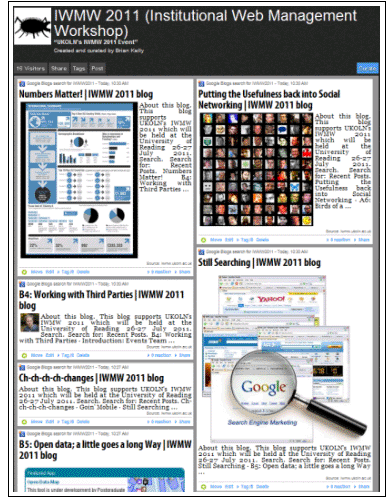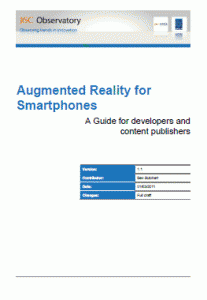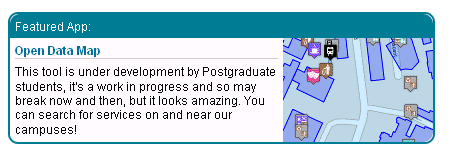The Importance of HTML5 (and Friends)
One area of technology which will be of interest to participants at the IWMW 2011 event will be HTML5 and the related Open Web Platform portfolio of W3C standards which can help to provide richer functionality with enhanced user interfaces. A plenary talk on “HTML5 (and friends)” given by Patrick Lauke at IWMW 2010 helped to generate interest in HTML5′s potential for use to support institutional Web services in a range of areas. But in the year since then how has the sector gone about using HTML5, CSS, AJAX and related technologies? Are we seeing significant benefits and if so, in which areas? What approaches are being taken to deploying HTML5 – in-house development work, use of HTML5 from existing content management systems, application development environments, VLEs, etc.?
Request for Proposals For Case Studies
In order to find answers to these questions the JISC is funding case studies on use of HTML5 and related standards in areas of relevance to the higher/further education sector. UKOLN, which is managing this work, has announced a Request for Proposals (RfP) For HTML5 Case Studies and a summary is given below.
The proposals for HTML5 case studies and demonstrators should describe best practices and scenarios for making use of HTML5 and related Open Web Platform standards in areas of relevance to those working in the higher and further education sectors.
The proposals should address new features of the emerging HTML5 standard (e.g. canvas; geo-location; local storage; video; form fill; etc.) or related standards which form part of the W3C’s Open Web Platform such as the CSS, DOM, MathML, etc.
Application areas might include, but are not restricted to, benefits to institutional Web site (e.g. SEO benefits or enriched functionality); teaching and learning applications (course lectures delivered via video, audio, etc.; lab notebooks); research applications (e.g. articles, series, journals; books; table of contents; bibliography; citation); multi-channel access; etc.
The proposals should describe how the work was implemented and the ways in which the new functionality was (or could be) implemented in a real-world context of legacy browsers; possible lack of development tools; etc.
Case studies must be made available under a Creative Commons licence and if accompanying code is provided this should be made available under an appropriate Open Source licence.
A sum of £5,000 is available for each accepted submission. The deadline for submissions is Monday 18 July 2011. Accepted proposals must agree to provide final case studies by 16 September 2011.






